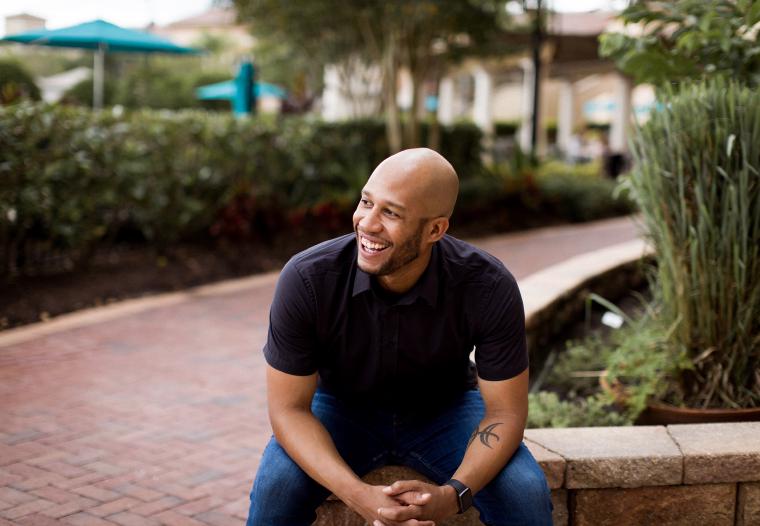- Saving
- Financial Health
- Money Management
What Black Wealth Looks Like Today

What does Black wealth look like?
If you were asked this question fifty years ago, you would’ve been correct in pointing to the few shining examples in the public eye such as actors, musicians and other entertainers. These days, the same is true except we’ve seen a few more notable examples across other professions such as doctors, lawyers, business leaders and athletes. Yet, despite these visible signs of progress, Black wealth, as a whole, is trending downwards in the United States. In fact, recent studies have shown that by the year 2053, the median wealth of Black families may fall to $0.
There is no single reason to explain why so many Black families have been unable to fulfill the promise of the American dream. Rather, there are several reasons for this decline, from unfair policies and discriminatory banking practices to domestic terrorism and income inequality. And while these may feel all but impossible to overcome, in recent years, we’ve seen several signs of progress that may serve as models for Black families to consider. While they aren’t foolproof, they may be just what you need to avoid becoming a negative financial statistic.
Digital entrepreneurship
When you think about the tech industry, it’s natural to think about Silicon Valley. But there are plenty of examples of tech hubs outside of California. Actually, there are thriving communities in cities like Atlanta, Chicago, New York City and Washington DC who are also known for having large, Black and upwardly mobile populations. Not a techie? Don’t understand coding? No problem!
You don’t need to be a computer science expert or web designer to earn income and start a real business on the internet. The explosion of social media, blogging, e-commerce and content creation online has turned earning income from a pipe dream to anyone’s game. So long as you have an internet connected device, it’s easier than ever to create professional, designed content, videos, blogs or open up an online e-store. As long as you can build and keep the attention of an online audience, you can earn income as a content creator, influencer or online business owner. Much like in the early years of the dot com bubble, social media platforms and the online tools have made it easier for people to earn income and build wealth in a short period of time.
The F.I.R.E Movement
F.I.R.E stands for Financial Independence, Retire Early. In short, it’s a small but mighty group of people who are passionate about money, saving and investing with the goal of retiring much earlier than the standard age of 65. General rules of thumb advise that people save between 10% and 15% of their income annually over the course of their career so they can retire comfortably at the age of 65. But F.I.R.E enthusiasts have been known to go to extreme lengths and save far more – upwards of 70% of their income. By living far below their means and investing at a high rate, they’re able to build wealth faster and shave years off their working careers.
Obviously, the key to living below your means starts with income. If you can earn enough income to live relatively comfortably, the goal is then to maintain that same cost of living, even as your income grows. In most cases, this typically means keeping your largest expenses (housing, transportation and food) low, as well as seeking every opportunity available to save in other budget categories. And with the unspent money, followers of this lifestyle are typically big fans of investing in low cost index funds in their retirement accounts. This approach to life and wealth building is attractive for Black families because it doesn’t require a specialized degree and has no barrier to entry. In theory, we can all make spending less and investing more a core part of our lives. However, it’s important to note that adopting a radically frugal approach will require some pretty intense short-term sacrifices.
Lessons learned over the years
Whether your focus is on building a multimillion-dollar digital enterprise or you’re penny pinching your way to building a nest egg, one thing is clear – ownership is key. Those who have started online businesses in recent years are owners of their platforms, domain, brand and in some cases, trademarks. Similarly, for the every-day “regular” FIRE movement follower, they’re owners too. As index fund investors, they own a tiny slice of every publicly traded company within their portfolio. This way, regardless of which companies have massive success or crushing failure, those who are owners of index funds reap the benefit if the market overall does well. Ownership in any form, to include housing, contracts, land or other appreciating assets is a critical component to building wealth. With that in mind, for Black families today, its critical we explore every option available to ensure we don’t lose ground.
While some of these approaches may seem intimidating, it’s important to note that they are all concepts that can be learned (in most cases for free) on the internet. Furthermore, regardless of how far one is able to climb the ladder of success, we all begin with learning the fundamentals of managing money like budgeting, building good credit and investing so that our money can grow well into the future.
The face of Black wealth is changing
Every week, my wife and I meet new Black families that are determined to beat the odds. As bloggers, budding authors and online entrepreneurs, with each interaction, we’re reminded of how important it is to be resilient and to keep an open mind. Many of the families we’ve met have gone on to build strong financial foundations and amass wealth that would’ve been unimaginable in recent history. Our hope is that these people, the regular, unexceptional, non- celebrities of the world become the new faces of Black wealth–changing the trajectory of our community forever.
Written by Julien Saunders
Entrepreneur, Founder of www.richandregular.com



